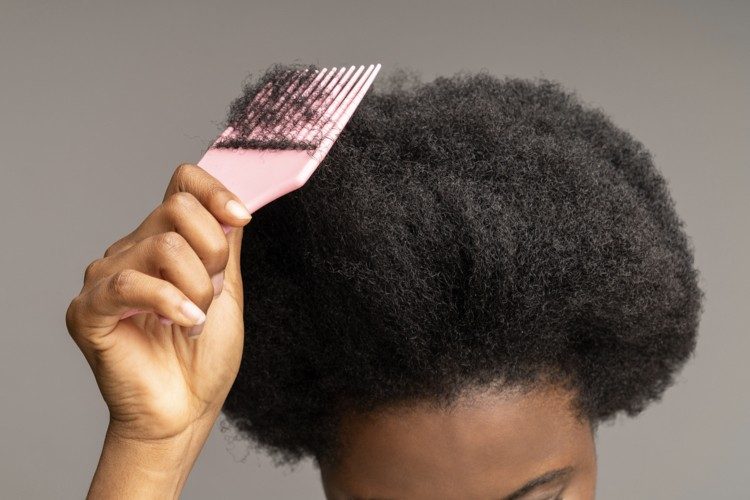
You might’ve thought there was conflict in Ukraine and a threat of nuclear war, an unrelenting invasion across our southern border, and skyrocketing prices poised to further decimate the middle class. But apparently all that is just background noise as Congress is finding time to tackle what really matters: regulating hair standards nationwide.
At issue is the CROWN Act (H.R. 2116), with the acronym meaning “Creating a Respectful and Open World for Natural Hair.” Introduced by Representative Bonnie Watson Coleman (D-N.J.) and passed Friday by the House of Representatives, with all 221 Democrats and 14 Republicans voting yea, the bill seeks to prevent hairstyle “discrimination.”
“No individual in the United States shall…be subjected to discrimination under…any program or activity receiving Federal financial assistance,” the act reads, “based on the individual’s hair texture or hairstyle, if that hair texture or that hairstyle is commonly associated with a particular race or national origin.”
(Of course, should this become law, courts will be deciding whether a hairstyle is thus associated.)
Unsurprisingly, it wasn’t just some generic concern about “racial hair discrimination” that inspired this legislation. Rather, H.R. 2116 itself states that “routinely, people of African descent are deprived of educational and employment opportunities because they are adorned with natural or protective hairstyles in which hair is tightly coiled or tightly curled, or worn in locs, cornrows, twists, braids, Bantu knots, or Afros.”
It’s questionable how “routine” such deprivation is, but Coleman has her story and she’s stickin’ to it.
“’Here we are today, standing on behalf of those individuals, whether my colleagues on the other side recognize it or not, are discriminated against as children in school, as adults who are trying to get jobs, individuals who are trying to get housing, individuals who simply want access to public accommodations and to be beneficiaries of federally-funded programs,’ [Coleman] said in remarks on the House floor Friday morning,” NBC News relates.
“And why are they denied these opportunities?” she continued. “Because there are folks in this society who get to make those decisions who think because you’re hair is kinky, it is braided, it is in knots or it is not straight and blonde and light brown, that you somehow are not worthy of access to those issues.”
Coleman didn’t, however, present even one example of a black American being discriminated against because his hair wasn’t “straight and blonde and light brown,” probably because that never, ever happens and is so preposterous that even Jussie Smollett wouldn’t fake such a claim.
Of course, one could wonder where in the Constitution the feds are granted the power to regulate hairstyle standards (even if the effort is, as this may be, an attempt by Democrats to shore up their flagging support among black Americans). Whether a good idea or not, it’s a state matter.
Were it a good idea, however, it’s possible it wouldn’t be marketed with lies and deceptive language. The CROWN Act contains eight instances of the word “natural” but, again, lists among the legally protected hairstyles those “worn in locs, cornrows, twists, braids, [and] Bantu knots.” But just take a gander at the video below. Natural?
Presumably, however, the above would fall into the “protective” category. Yet while CROWN uses the term “protective hairstyles” seven times, it never once defines “protective” for the purposes of the bill. The description sounds as if it should mean matting your hair down with super glue or concrete. But when normal people think about something protective on the head, they conceptualize a helmet.
It is, of course, natural for black people to have tightly coiled hair — which is fine, of course — and for it to become a quite large Afro with enough growth. It also may be “natural” for other racial groups to have hair down to their waists. Other natural phenomena might include lion-mane-like beards on men — or for that matter body odor and plaque-laden teeth.
The point isn’t that “natural” is necessarily bad, only that it isn’t by definition good, either — and this quality alone is not a justification for anything and everything. For example, you probably wouldn’t want this guy preparing and hovering over your food.
That brings us to the other point: Is it unreasonable for schools and businesses to have dress codes inclusive of hair standards? And who should decide: citizen-elected school boards and business owners (who actually created their establishments) — or the feds?
Coleman has her answer. And in arguing for CROWN, she “referenced Andrew Johnson, a Black varsity high school wrestler in New Jersey with dreadlocks who was forced in 2018 to make a choice: cut his hair or forfeit his match,” NBC further reports.
But is this congresswoman an authority on wrestling? Being highly physical and a fight sport, it’s entirely possible that long hair may be prohibited for serious safety reasons. Coleman ought to ponder Chesterton’s Fence.
NBC also links to a 2019 article informing that NYC guidelines recognize the “right to keep hair in an uncut or untrimmed state.” How far should this go? Should people be allowed to show up for work looking like a caveman? Can you imagine esteemed state and federal judges splitting hairs over this?
The positive news is that H.R. 2116 faces an uncertain future in the Senate, we’re told. This is good because unlike Jack, Joe Biden may fall down, but he won’t break this CROWN — he supports it. He reserves the breakage activity for our foreign policy, borders, and middle class.


